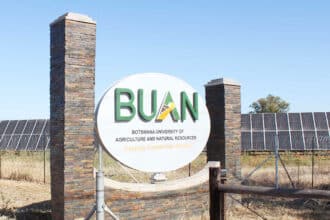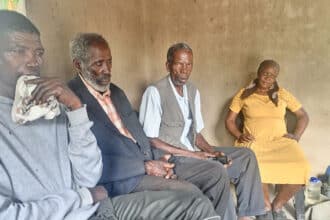Ahead of the scheduled September 2023 opening date, Lobatse Clay Works(LCW) is targeting to export its products to some of the neighbouring countries in order to increase its market and revenue.
Specialists in clay face bricks and pavers, LCW was closed in 2017 due to operational constraints which included high production costs, more especially fuel and a plant which was not operating optimally.
“We want to take the business back to its glory days because this will once more contribute to the economic development and stimulate economic activity in Lobatse and Botswana. We have done our market study ,we were never going to restart operations without doing due diligence. So we had to do in-depth market research to quantify if this is still a viable business and market availability. So there is a market in Botswana and there is market for export so we are looking at North West province in South Africa, Namibia and Zimbabwe as areas to take our products to,” said Caretaker Chief Executive Officer, Boitshwarelo Lebang-Kgetse.
With the process of reviving LCW having started in May 2022 with procurement of equipment, Botswana Development Corporation (BDC) has already injected P79 million thus far for refurbishment of the plant. As a result, a new brick molding plant which will be more efficient and effective is being installed to replace the old one after all equipment were stripped off for refurbishment.
Further, LCW will now employ the use of a hybrid fuel system which will use both diesel and coal which is much cheaper. Currently the only operational activity being undertaken on site is clay mining with 30 000 tonnes already stock piled.
“We are looking at a more efficient business, so we are not going back to the old plant that we used to have. Businesses of this nature compete on efficiency so we are looking at introducing that on output and throughput and produce a lot more than we used to produce. Further we are looking at cutting costs in terms of inputs including fuel and many other things, so we are really bringing an efficient and competitive business, “said Lebang-Kgetse.
Currently the refurbishment process is at 60 percent completion since some parts of the plant are produced in Italy while some equipment have been taken to South Africa for repairs and remanufacturing.
Initially producing 3 million bricks a day which translated to 36 million per annum, Lebang-Kgetse said that is where they will start with their production though they will further ramp up production.
When the plant ceased operations in 2017 it had 240 employees, but according to Lebang-Kgetse, they are looking at employing 141 people when operations restart. However at the time of refurbishment phase, LCW had 45 employees on site with 19 of them retained





